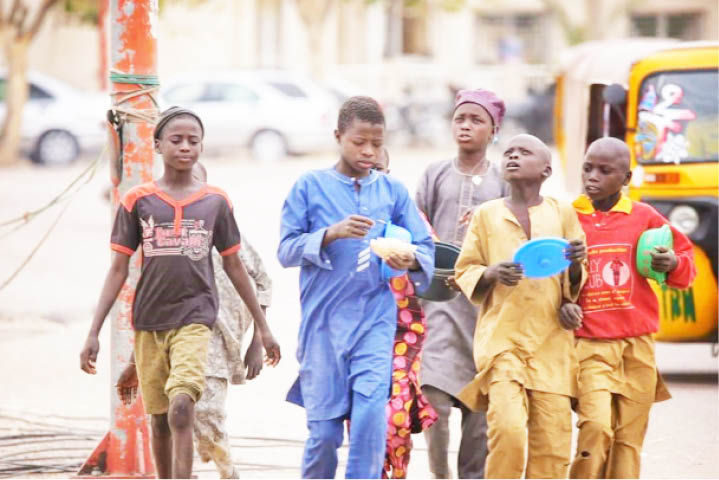So what if we simply register all tsangaya schools with 20 or more almajirai as schools proper, enlist their Malamai into a payroll as teachers proper, and enrol the almajirai in each school as students proper? I will return to this point shortly.
Policy-making on the almajiri system of education has a long history of its own in Nigeria. The federal government, through the Federal Ministry of Education and the Universal Basic Education Commission, many state governments and several international organisations and agencies have all tried in the past to reform the almajiri system., while many are still working on different models even today. All of these have been well-intentioned and some have left positive imprints on the system.
- 56-year-old Kaduna’s only textile coy sacks 300 staff
- Why we are setting up bioscience lab in Yobe – UK-based Nigerian
It appears, however, that most of these policies in one form or another seek to change the almajiri system of education into something else, that is, to transform tsangaya schools into ‘modern’ schools to allow the ‘integration’ of secular education with the Qur’anic education that almajiri children traditionally receive. No doubt, this is an ambitious and noble idea, and one that we should all encourage.
However, as a social policy, it generates even more problems than it solves. First, the enormous capital outlay required to build, equip and run ‘modern’ schools for additional 10 million children currently estimated to be in the almajiri system is simply so overwhelming as to discourage any genuine efforts by Nigerian governments and their partners, especially since a majority of the existing state schools are already in a state of disrepair throughout the country.
Secondly, the idea of transforming almajiri schools into modern schools that combine Qur’anic and secular education leaves out two critical stakeholders in the old system: the teachers and parents of the almajirai, not to talk of the children themselves. But without an active, even beneficial, role for these stakeholders in any new system, the policy is unlikely to work. No surprise then that the modern almajirai schools in several northern states built by the Jonathan administration for N15 billion are now rotting away, however well-intentioned the idea might have been.
Third, the curriculum envisioned for transforming tsangaya schools into modern secular schools is probably also too ambitious. The integration policy envisions that the almajiri children will receive basic education, that is, 6-9 years of formal secular education, in addition to learning the Qur’an, in the new modern schools. That means learning such subjects as English, Maths, Primary Science, Social Studies, and so on. But the reality is that few non-almajiri children enrolled in the existing state schools can speak three sentences in English or write their own names, let alone to name the planets, even after six or more years of formal education.
In other words, the integration policy of the federal government is either too fanciful or hypocritical, or both at once. So may be what we need is to cut our coat according to our cloth, to borrow a popular saying. What is needed to reform the almajiri system is a policy that is cost-effective, that provides for active roles for parents and Malamai in the new system, and one that is modest, and honest, in its goals. Stripped of its fancy, and with a few tweaks here and there, the existing integration policy of the federal and many state governments can still work well.
This brings us to where we started. What makes any system of education formal is not necessarily state-of-the-art physical structures or equipment, however desirable these may be, but the legal and organisational structure on which the system is based. Thus, once all tsangaya schools are registered as schools, the teachers legally recognised as employees of the state or of a trust, and the almajirai enrolled as students, the curtain wall of difference and exclusion would be removed. Learning, both secular and religious, can still take place even under the barest of conditions. All that is required is a clean environment, mats, books and plenty food.
Moreover, the salaries paid to the teachers will give them a sense that their work is valuable and valued by society, and therefore their cooperation in making any genuine reforms work. More importantly, paying the Malamai salaries gives the government, or a trust on behalf of the government, a measure of control over what can or cannot be taught and how it should be taught, a key lever of influence that the government currently lacks within the almajiri system.
The curriculum can then settle for basic literacy, numeracy, and secular civic education, all in English, in addition to the Qur’anic education received. A vocational education that prepares graduates of this system for jobs could be thrown into the mix for those aged 13 years or above. But most importantly, the same basic literacy, numeracy and civic education should be provided to the parents of the almajirai as well. This will open up spaces to the government to communicate new messaging designed towards changing attitudes and behaviour.
This is only a sketch, of course. But my guess is that even the ability to read and write, and to understand certain issues about the self and the state, could be sufficient to empower parents and their children enough voluntary wish to discontinue the practice over time. And yes, you might be right to think it won’t work either. But what the potential of what has not been tried cannot be dismissed.

 Join Daily Trust WhatsApp Community For Quick Access To News and Happenings Around You.
Join Daily Trust WhatsApp Community For Quick Access To News and Happenings Around You.


